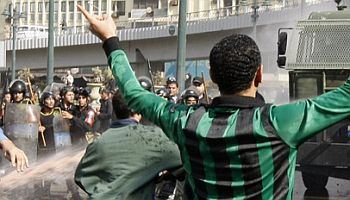Amid Riots, Egypt Is Back Online

Egypt’s Internet block is lifted, and President Mubarak has promised change, but troubles continue
Authorities have restored Internet service in Egypt despite the ongoing demonstration and clashes between pro and anti-Mubarak activists in Cairo.
Egyptian ISPs have come back online since around 9.30am this morning after five days of Internet blackout that paralysed 91 percent of Egypt’s Internet networks.

The Internet restoration followed President Hosni Mubarak’s speech yesterday, where he promised his resignation in September this year. The president also vowed he would not seek re-election.
According to statistics from Internet resource distributor RIPE, online activities among Egyptian organisations are surging rapidly.
Pro-Mubarak vs anti-government
Meanwhile, Mubarak’s speech has caused mixed sentiments among protesters.
A number of people are reportedly leaving the anti-government demonstration. However, clashes have been reported after around 20,000 pro-Mubarak supporters confronted the remaining demonstrators near Tahrir Square.
Some claimed the president should remain in power, while others said he should leave his office and make way for sustainable political reform.
Another wave of protest is expected on Friday 5 February after prayers. But whether the demonstrators will get to maintain their online activities this time remains unknown.
Dial-up modem
During the Internet blackout, many Egyptians learnt how to dodge cyber restriction imposed by their government.
Dial-up modems became a popular tool that helped them get back online. Long lists of both local and international numbers that connect to dial-up modems were shared among web users across the nation, particularly on Twitter, where protest-related messages were tagged with hashes like #Egypt and #jan25.
ISPs in several countries set up pools of modems that received international calls from Egypt and helped facilitate communication.
“They rely on overseas-based ISPs and different proxy software such as Hotspot Shield – which has been shared among Facebook users – to circumvent the communications blackout,” said Cairo-based journalist Randa Eltahawy.